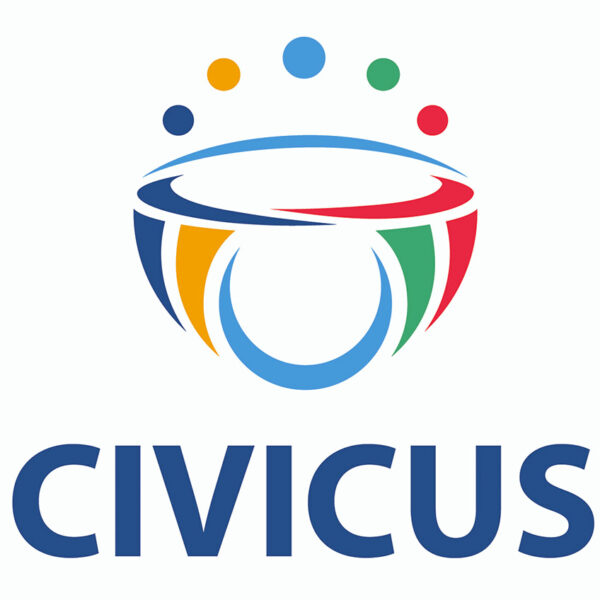In the face of rising restrictions and brazen attacks on fundamental freedoms, citizens across the globe are responding with resolute resistance, in creative, and powerful ways.
This is the main takeaway of CIVICUS’ 2018 State of Civil Society Report. Findings from the report identified 10 key trends. Notable among these is a spurring of peaceful resistance by active citizens and civil society against unjust actions. The report points out that almost everywhere we look, we see signs of citizens organising and mobilising in new and creative ways to defend civic freedoms, fight for social justice and equality, and push back on populism. This trend is most exemplified in the spotlight that has been shone on patriarchy, sexual harassment, gender and power imbalances, thanks to the #MeToo and Times Up movements.
The report references several positive examples to illustrate fight back against restrictions and regressive policies. These include citizen action to persuade the government in El Salvador to pass a law banning gold mining practices that harm the land, water and communities. In Romania, hundreds of thousands took to the streets to resist government plans to soft-pedal on corruption, and in South Korea, mass protest action led to the impeachment and jailing of a corrupt president.
This review of civil society highlights how when the worst of humanity came to the fore in places like Myanmar, Syria and Yemen, civil society showed its best by voluntarily placing themselves in the firing line to expose human rights abuses.
The other trends explored in the report relate to the different ways in which civil society and democratic space is being squeezed.
There have been increasing instances of personal rule and the politics of patronage eclipsing the rule of law and undermining democratic institutions in many countries. Among these are examples of Bolivia and Uganda, where leaders sought to illegitimately amend national constitutions to stay in power to extend their tenures. China’s president Xi Jinping followed suit by potentially making himself president for life. The report also points to instances where hard-line presidents have engineered courts in their favour, such as in Venezuela where judges were jailed for opposing the president and proxies were appointed to skew court decisions.
Another noted trend is the rise of polarising politics and unjust economic systems dividing societies and reducing the international community’s ability to address key global challenges such as violent conflict, inequality and climate change. The report finds that identity-based politics are trumping issue-based politics through neo-fascist ideologies that encourage xenophobia and narrow notions of nationalism in several countries including Hungary, India, Israel, the Philippines, Turkey, Uganda and the US.
Attacks on the independent media and online freedom are other key highlights. Several high-profile journalists reporting on corrupt activities of political and economic leaders or covering public protests are being attacked in brazen ways. Examples include the car bomb killing of investigative journalist Daphne Caruana, who exposed high-level corruption in Malta.
The promise of the internet and social is being compromised with illicit surveillance becoming more commonplace. Many in civil society are being targeted by false propaganda is spread by rogue states and extreme right-wing elements. At times of contestation, such as elections or national protests, governments, such as those in Cameroon, Iran and Togo during 2017 shut down the internet or access to social media tools to restrict communication. The report finds that online platforms have become battlegrounds in which regressive voices are seeking to shape opinion with misinformation and myths, including through trolls imploding progressive conversations.
Another worrying phenomenon is the rise of ‘uncivil’ society – socially conservative forces claiming civil society space, increasingly emboldened by populist and repressive politics. These groups – which include think tanks that advance nationalist and xenophobic ideas and protest movements against LGBTI, refugee, migrant and women’s rights – are seeking to weaken the impact of civil society that advances progressive positions. An example, the report notes, is Poland, where state funding schemes have been reworked to enable greater support for uncivil society.
The report makes a number of key recommendations for active citizens, democratic governments, multilateral institutions, the private sector, media and academia. Democratic governments are encouraged to model the deepening of democratic practice by enabling spaces for discussion, dissent and dialogue at all levels and to resist moves to weaken human rights standards at the multilateral level. Active citizens are urged to connect locally, nationally and internationally on social justice causes and mobilise in different ways, including through volunteering.
Another key recommendation is that multilateral institutions should reinforce the primacy of civil society participation in decision-making and find new ways to open up spaces for public participation in their activities, while the private sector, media and academia are encouraged to make common cause with civil society in the defence of human rights by forming new alliances, sharing platforms and partnering in joint campaigns.










